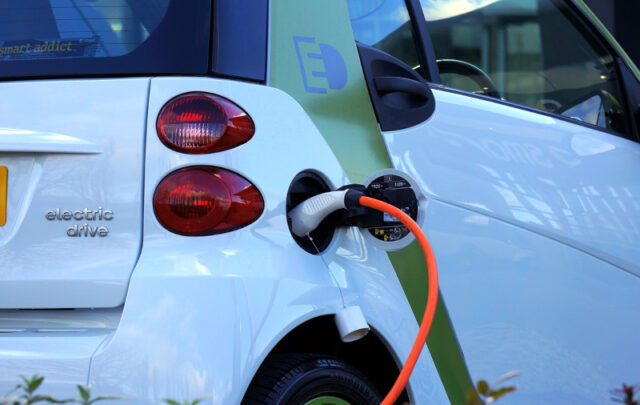The Oil Age, defined by abundant and cheap petroleum that fueled a century of boundless economic growth for the United States and other industrialized nations, is coming to a close more rapidly than most Americans realize. What even fewer seem to understand is the magnitude of the crisis that may arise as the amount of crude oil that can readily be pumped out of the ground continues to shrink and global demand for what’s left grows exponentially.
That scenario is expected to accelerate in the next three decades, according to some prominent energy experts. The attendant shortages could upend our economy, send consumer prices soaring and intensify military conflicts among nations desperate to ensure their access to dwindling supplies.
So, the great question of our time is: What do we do now?
Neither the White House nor Congress is providing very good answers, but there are signs of hope for workable solutions in our own back yard. Last week, the Georgia Institute of Technology launched the Strategic Energy Initiative, a multidisciplinary program designed to prepare America for the “tipping point” when demand for finite petroleum resources inevitably overcomes supply.
The focus of Tech’s fledgling energy initiative is fourfold: to address existing barriers to increasing energy production overall; to frame energy independence as an urgent national security issue; to lay the foundations for economic growth based on sustainable technologies; and to protect the natural environment.
That’s a very tall order. Reducing pollution while increasing energy efficiency for cars and household appliances is a logical place to start and must be part of any sound energy policy going forward. However, there are no sources of energy that are sufficiently mature to fill the vacuum that will be left as petroleum reserves dry up.
Tech professor Sam Shelton, who is leading the school’s energy program, plans to approach the subject free of biases about which possible replacement technologies are superior. Those that may seem promising at first but fail to attract corporate sponsorship or government backing probably won’t make the grade. However, that hasn’t prevented the school from pursuing a feasibility study to build windmills off the Georgia coast as a way of generating electrical power, a technology that has already proven effective in the northeast, the Midwest and parts of Europe.
Those tempted to dismiss Shelton and his group as alarmist eggheads embarking on worthless science fair projects should listen to Matt Simmons, the keynote speaker at the SEI conference.
“I’m deeply concerned about where we are on energy policy right now,” he said.
Simmons should know. A longtime industry veteran who runs an eponymous investment bank, Simmons was a key player in the task force convened by Vice President Dick Cheney nearly four years ago to craft a national energy strategy.
Although expressing confidence in the Bush administration, Simmons is skeptical about the assumptions on which some of the task force’s conclusions were based. He’s also leery of the conventional – but increasingly questionable – wisdom that continues to drive energy markets.
Simmons cautions that the United States and other large oil consumers still rely on unverified and probably inflated reports from Middle East oil suppliers who insist reserves are plentiful and are breezily confident they can ramp up production to meet rising consumption. That absurd honor system has been in place for nearly two decades and lulled us into a false sense of security.
“We need to take our rose-colored glasses off,” Simmons says, adding that the real problem with America’s energy policy is that, when the day of reckoning comes, “We have no plan B.”
Simmons said America needs to adopt a kitchen sink approach to energy production – establishing tougher efficiency standards while also aggressively promoting everything from domestic oil production to hydrogen fuel cells to solar panels, to nuclear power and bio-diesel fuels – all at once.
“Plan C,” as Simmons refers to it, will require a massive federal effort, akin to the Apollo space missions, to develop and perfect new energy sources and delivery systems for the long term. To be successful, that effort must begin in earnest immediately.
“All great crises resulted from problems that were ignored too long,” he said.
With Georgia Tech now taking up that challenge, there’s a chance the nation’s murky energy outlook may burn just a little bit brighter.





